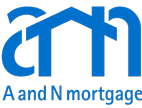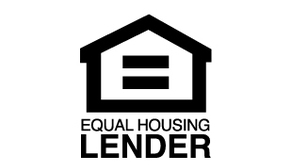Though you may need mortgage insurance when borrowing money to buy your home, you might not fully understand what it is or how it works. Mortgage insurance can be helpful. However, the varying types of mortgage insurance–and the complicated process required to obtain it–can result in costly mistakes.
Fortunately, you can reduce the risk of making those mistakes by learning more about mortgage insurance. This post will help you discover what mortgage insurance is, how it could impact your chances of owning a home, and the ways you can capitalize on your mortgage insurance.
What Is Mortgage Insurance?
Also known as private mortgage insurance (PMI), mortgage insurance is insurance that mortgage providers require when financing a property purchase with a down payment of 20% or less of the total sales price.
Typically, lenders expect to lose about 20% of the money they loan you if you default on your mortgage. PMI protects lenders from potential losses, making them feel more comfortable taking on the risk of a loan.
Mortgage insurance isn’t always necessary. That said, lending companies require it in certain circumstances. For instance, you’ll need PMI if you buy a home with a down payment of less than 20% of the property’s sale price. Also, your bank might require PMI if it deems your loan too risky.
How Mortgage Insurance Works
Mortgage insurance works differently based on the type of loan you receive. Many major types of loans–including conventional, USDA, VA, and FHA loans–manage mortgage insurance coverage differently.
For example, some of the loans mentioned above require upfront mortgage insurance coverage, some only require it for certain periods during the life of your loan, and others require a mixture of the two.
Which Types of Loans Need Mortgage Insurance?
Conventional and FHA loans require mortgage insurance, while VA and USDA loans do not. Conventional loans typically require PMI if your down payment is less than 20% of your home’s value. On the other hand, FHA loans require a mortgage insurance premium (MIP), plus an annual premium for the loan’s duration.
While USDA loans do not require mortgage insurance, you will have to pay an upfront premium if your down payment is less than 20% of the total loan, similar to conventional loans.
Finally, VA loans do not require mortgage insurance. However, you’ll pay a funding fee similar to an FHA loan’s upfront premium.
Conventional Loans
Conventional loan lenders will usually require you to maintain PMI coverage until you obtain 20% equity in your home. Your insurance coverage will cost between 0.19-1.86% of your loan amount. Often, your mortgage provider will include your PMI costs in your monthly mortgage payments.
After you have reached 20% equity, you can ask your lender to cancel the mortgage insurance or wait until you reach 22% equity, at which point national laws require your lender to remove it.
USDA Loans
If you are a rural or suburban homebuyer, a USDA loan may provide financing without a down payment. Instead, you will pay an upfront guarantee and an annual fee of 0.35% of the average outstanding loan balance.
USDA loans allow you to finance your premium as part of your loan. Further, USDA loan fees may change from year to year, though you will receive a fixed rate for the duration of your loan.
FHA Loans
In an effort to make homebuying accessible, the Federal Housing Administration accepts down payments as low as 3.5%. Further, the FHA offers loans with fewer qualification requirements.
To get an FHA loan, you’ll need to cover a mortgage insurance premium worth 1.75% of the loan amount. Then, you’ll pay an annual mortgage insurance premium of 0.45-1.05% of the loan’s average outstanding balance.
If you make a down payment of 10% or less of your home’s property value, you’ll continue paying the premium for the entire loan duration. However, if you put down 10% or more of your home’s value, you will only pay the premium for 11 years.
VA Loans
If you are a veteran, you can pay an upfront funding fee worth 1.25-3.3% of your loan amount rather than obtaining PMI. This fee helps fund the program and enables the Department of Veterans Affairs to guarantee lenders that you will not default on your loan. Keep in mind that your rates depend on the down payment amount and whether you’ve used the program before.
How Much Does Mortgage Insurance Cost?
Generally, your mortgage insurance provider will calculate your rates based on your total loan value. More specifically, your provider will calculate your rates based on your loan-to-value ratio, which is how much you owe compared to your home’s value.
As such, the cost of PMI depends on the amount of money you put down. You will pay less by putting 20% down than if you put 10% or 5% down.
Your credit score can also influence your PMI costs. The higher your credit score, the lower the costs because candidates with higher scores pose minimal default risks.
PMI Rates
- Conventional Loans: You will pay nothing upfront and divide yearly costs of about $3,500 into monthly payments of $280. You can then cancel the premium once you have paid 20% in equity.
- USDA Loans: Your lender will require an upfront initial mortgage insurance payment of $2,900. You’ll then pay $1,000 each year, or roughly $84 a month.
- FHA Loans: Following an initial payment of $5,000, you will make annual payments of $2,500, or about $200 each month.
- VA Loans: Since VA loans don’t require mortgage insurance, you will only need to make a single payment of about $6,700 as a one-time funding fee that covers your initial mortgage insurance costs.
Paying the Premiums
When and how you pay your premiums varies depending on the different types of mortgage insurance.
For instance, if you opt for an FHA loan, you can pay the upfront premiums in a lump sum at closing or choose the more common method of paying your premiums in installments. You can also pay your annual premiums in a lump sum or as monthly payments throughout the year.
How to Reduce Your Mortgage Insurance Payment
Mortgage insurance enables you to buy a home. However, there are a few ways to reduce your mortgage insurance payment and make the process of buying a home more affordable, such as:
1. Increasing Your Credit Score
Since higher credit scores indicate you pose a lower risk to your lender, increasing your credit score results in minimal premiums. Also, if you are refinancing, avoid taking cash out to ensure that you get the lowest possible rates.
2. Offering Lenders Proof of Minimal Risk
Besides high credit scores, you can ensure your lenders that you represent a minimal risk in several ways. For example, increasing your down payment amount will lower your PMI, while conducting an appraisal on your home will help you get a lower loan-to-value ratio.
3. Choosing the Right Loan Type
Government loans, like FHA funding, usually require you to pay higher premiums than conventional loans because the government takes on the risk of your loan. With that in mind, consider alternatives to determine the best option for your needs.
Is Mortgage Insurance Worth It?
If you are like most homebuyers, you don’t want to pay more each month. However, mortgage insurance can be financially sensible in certain situations.
For starters, if you have a low credit score, you know how challenging it can be to secure a loan. Thanks to the added security PMI offers lenders, you can obtain your home loan and begin enjoying the benefits of homeownership.
Further, by taking advantage of PMI, you can buy a home without a large down payment. Choosing to buy a home with a lower down payment can save you time since you won’t have to rent while saving to afford the down payment. As a result, you can begin building equity in your home instead of paying rent, which usually increases each year.
Find Out If Mortgage Insurance Is Right for You
Mortgage insurance looks different for each buyer and loan type. While the information we have provided will help set you on the right track, remember to dig deeper to determine the costs and benefits of PMI.
If you have any more questions about mortgage insurance, do not hesitate to reach out to A and N Mortgage. Our team of seasoned experts can help you determine if mortgage insurance is right for you, then guide you through the mortgage process.
No matter if you need valuable tips or help with an online mortgage pre-approved application, we can help you buy or sell your home. Give our team at A and N Mortgage a call today at 773-305-LOAN for more information on funding your dream home.
A and N Mortgage Services Inc, a mortgage banker in Chicago, IL provides you with high-quality home loan programs, including FHA home loans, tailored to fit your unique situation with some of the most competitive rates in the nation. Whether you are a first-time homebuyer, relocating to a new job, or buying an investment property, our expert team will help you use your new mortgage as a smart financial tool.







